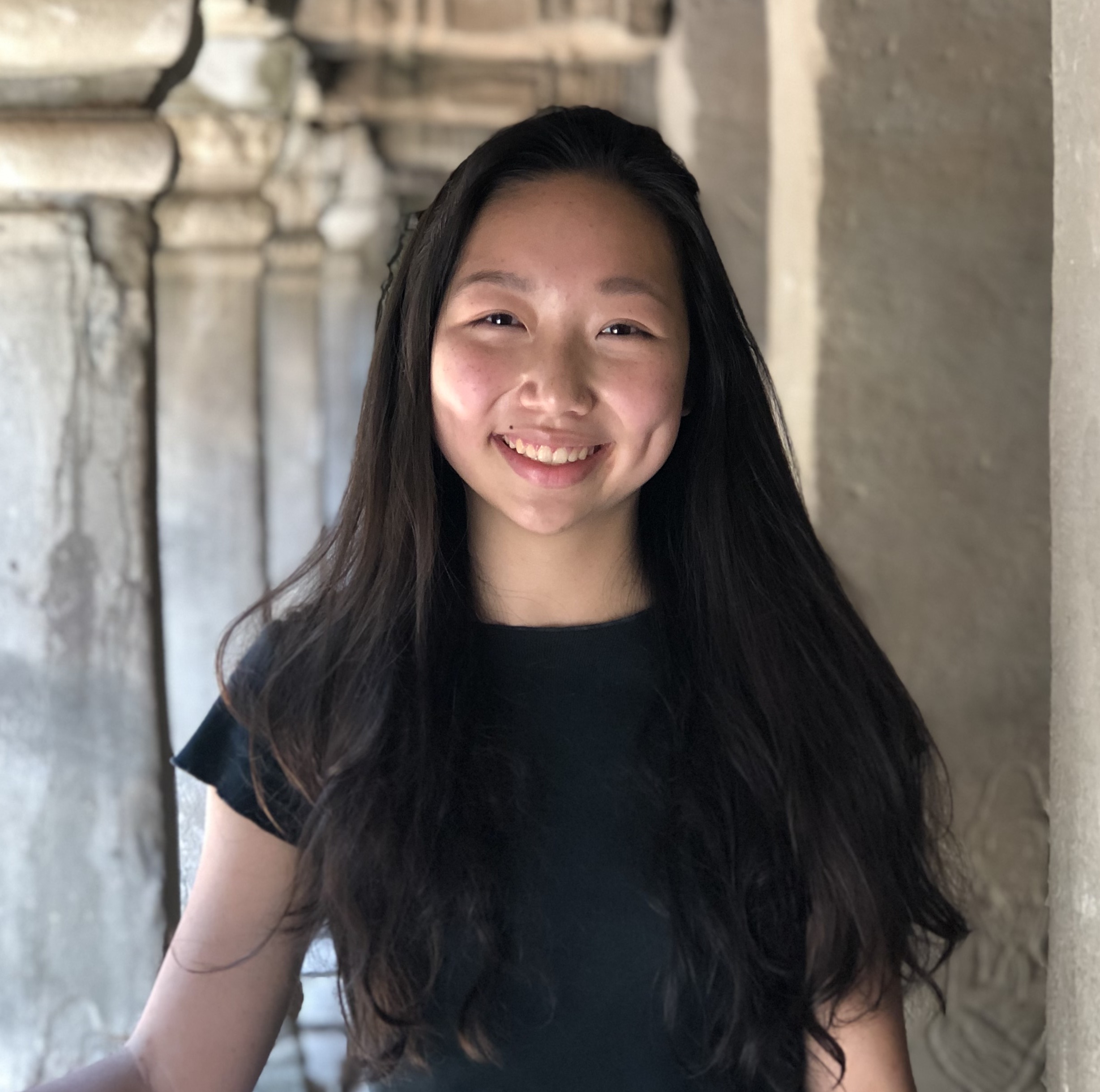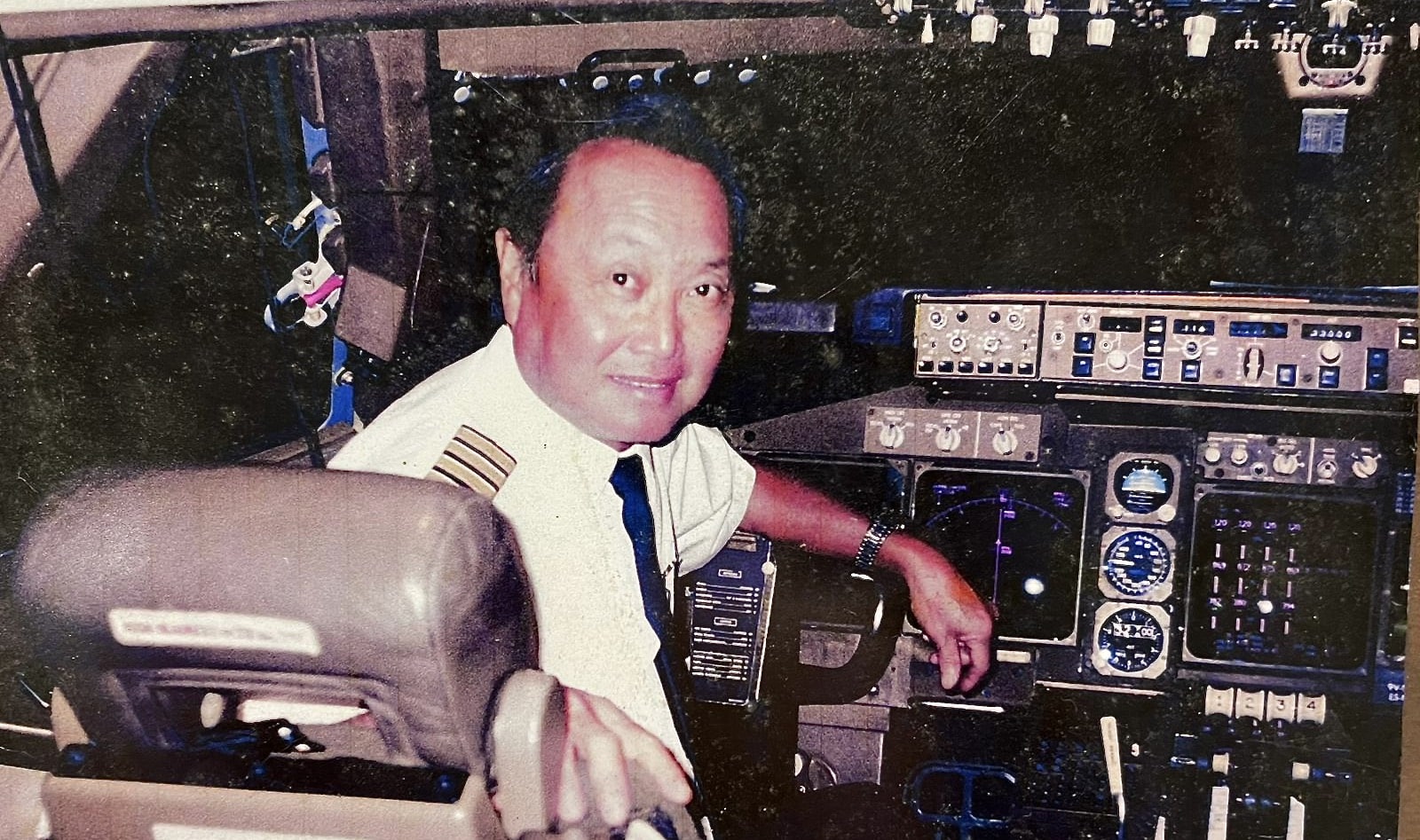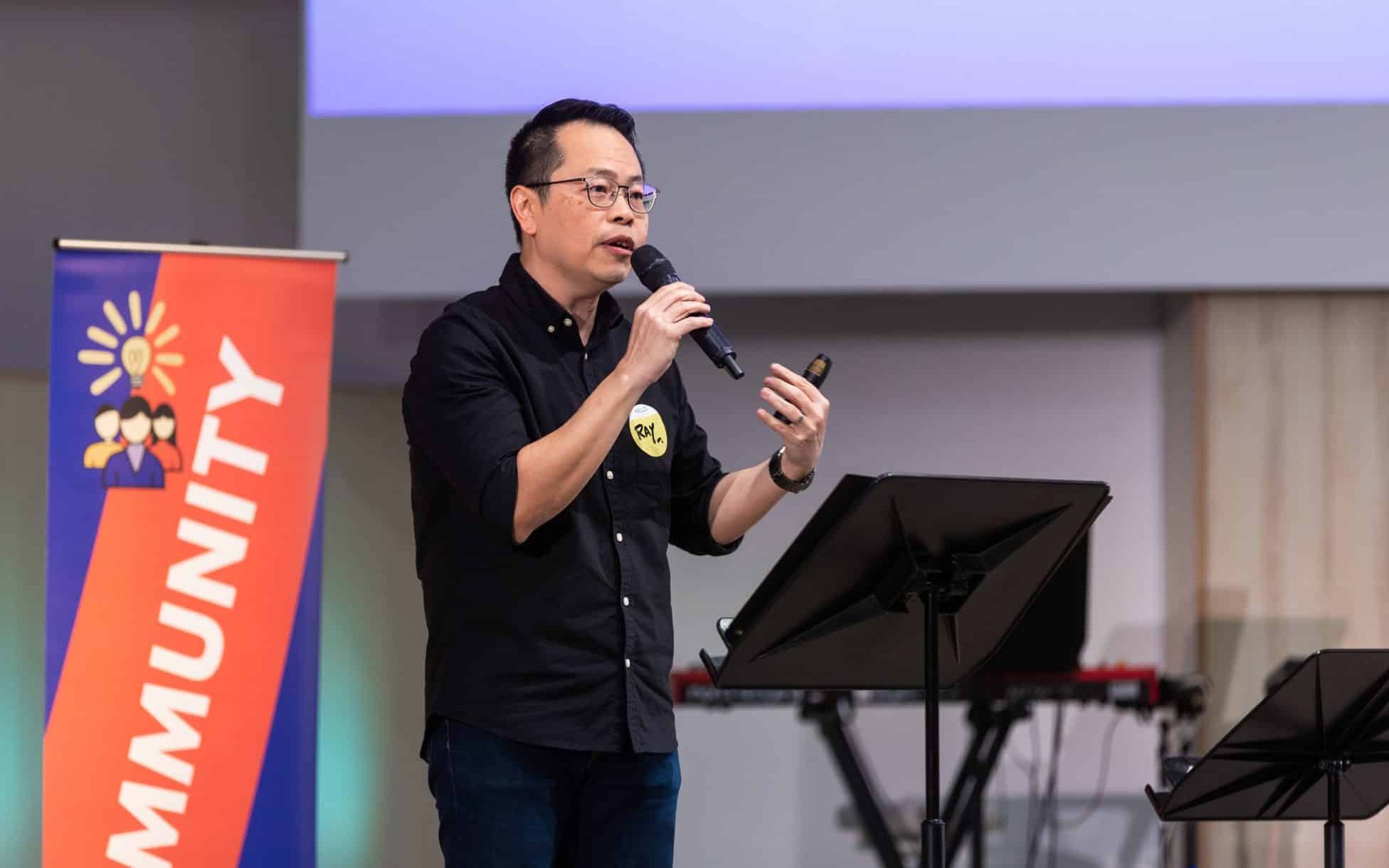A fearless pioneer of the Lee Kong Chian School of Medicine, this female trailblazer shares what anchored her
Tricia Tan Hui Ling // June 3, 2022, 4:36 pm
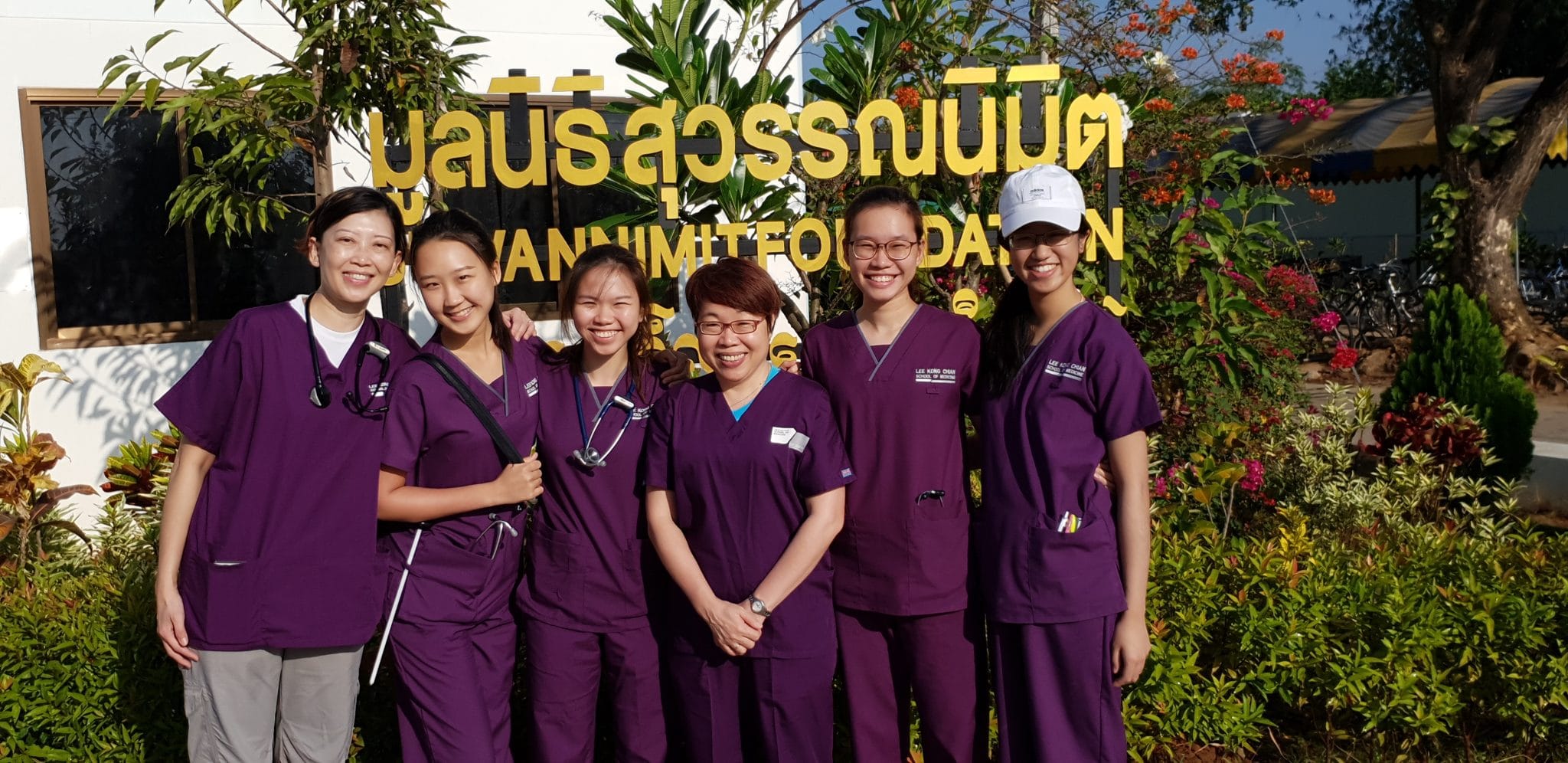
Dr Tham Kum Ying (centre), was a founding member of the Lee Kong Chian School of Medicine, Singapore's youngest medical school. Dr Tham is pictured here with LKCMedicine students and Advanced Practice Nurses on an Overseas Community Involvement project to North Thailand in 2019. All photos by Dr Tham unless stated otherwise.
Dr Tham Kum Ying, a multi-award winning educator and medical school pioneer, was very nearly a lawyer.
“My dad thought law was a better profession for women than medicine, and I was keen about both fields, so we decided to flip a coin.”
One fortuitous coin flip later, she found herself enrolled in the Faculty of Medicine at the National University of Singapore in 1983.
“We were the first batch to enjoy the new campus (in Kent Ridge). The lecture hall was so new that we were nearly intoxicated by the lacquer on the benches and tables!” she joked.
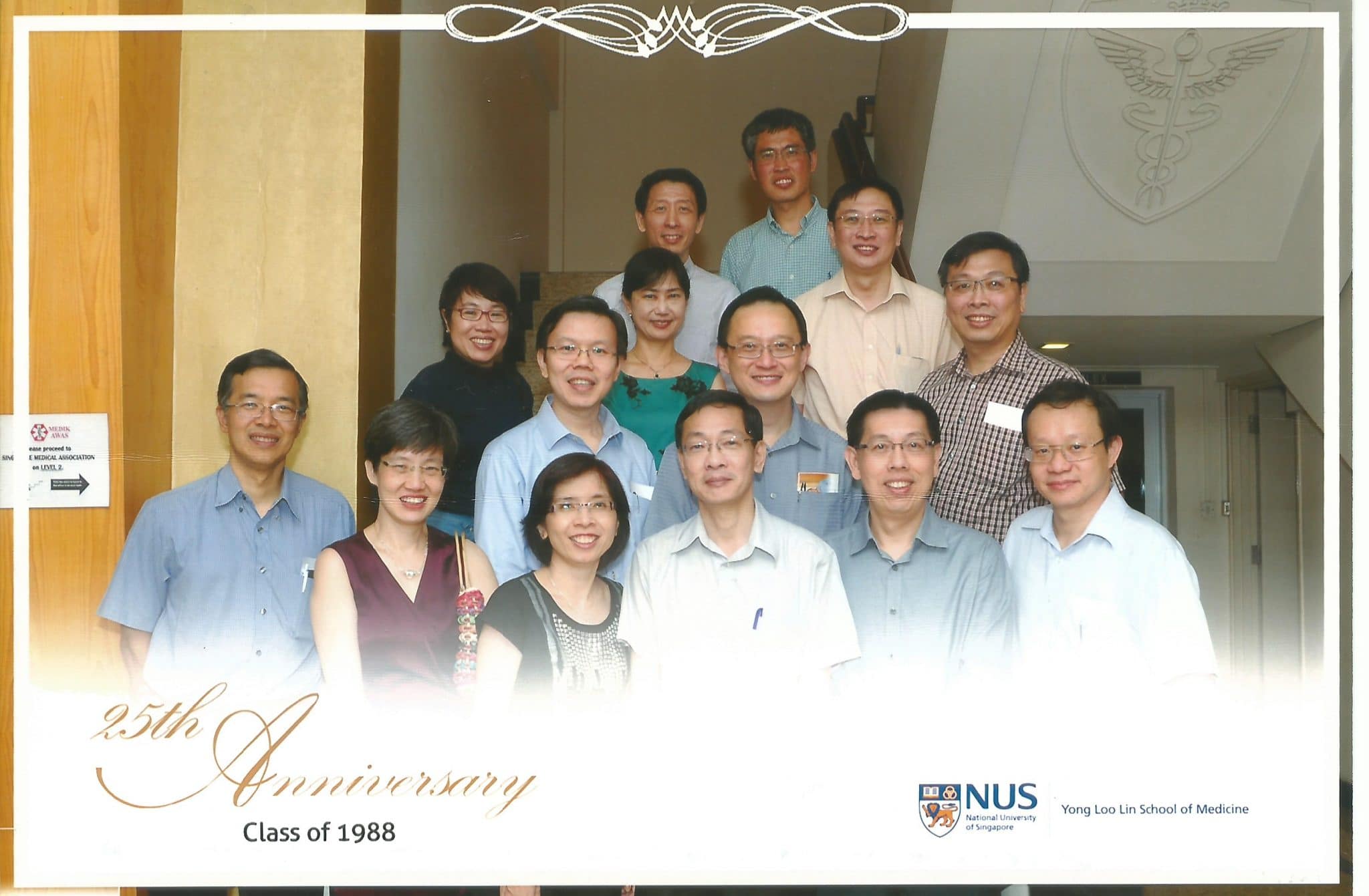
Dr Tham (third row from front, first from left) at a medical school reunion with her ex-classmates from the class of 1988.
In many ways, Dr Tham defies stereotypes.
For one, her hair is a silvery pink. Her matching glasses frame her brightened eyes as she enthuses about her time in the local public healthcare sector.
She is equally excited about discussing healthcare policy and about her interactions with nurses and junior staff.
In her forties, she was elected as the youngest associate dean at that time – and the first female dean – of Singapore’s first medical school, the Yong Loo Lin School of Medicine.
With the precious experience, she was tasked to found a second undergraduate medical school a decade later.
On top of that, Dr Tham has won several awards for her excellence in teaching and kind leadership.
Skimming her many accolades, one might picture her as a tender shepherd. But Dr Tham is a self-described disciplinarian, who sternly corrects students in one breath and fiercely lobbies for their university library in another.
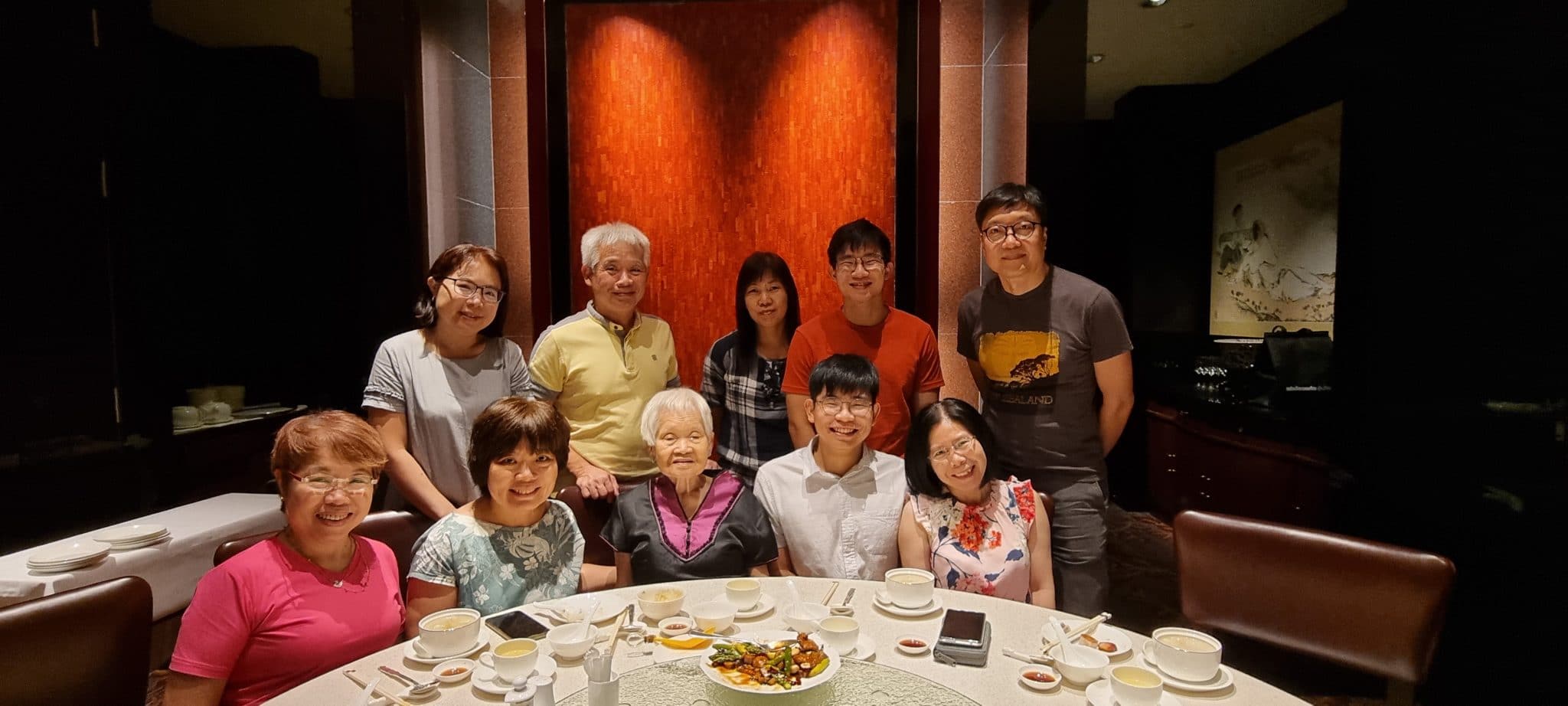
When Dr Tham went through a personal tragedy, her family stepped in as a strong pillar of support.
The oldest daughter of a mechanic and homemaker, Dr Tham grew up in a humble apartment with four younger siblings.
“There were rough patches when my father’s employer could not pay him, so it wasn’t always easy,” Dr Tham shared.
She came to Christ in her secondary school years, and subsequently joined the Navigators when she was in medical school.
When Emergency Medicine paved the way for the gospel
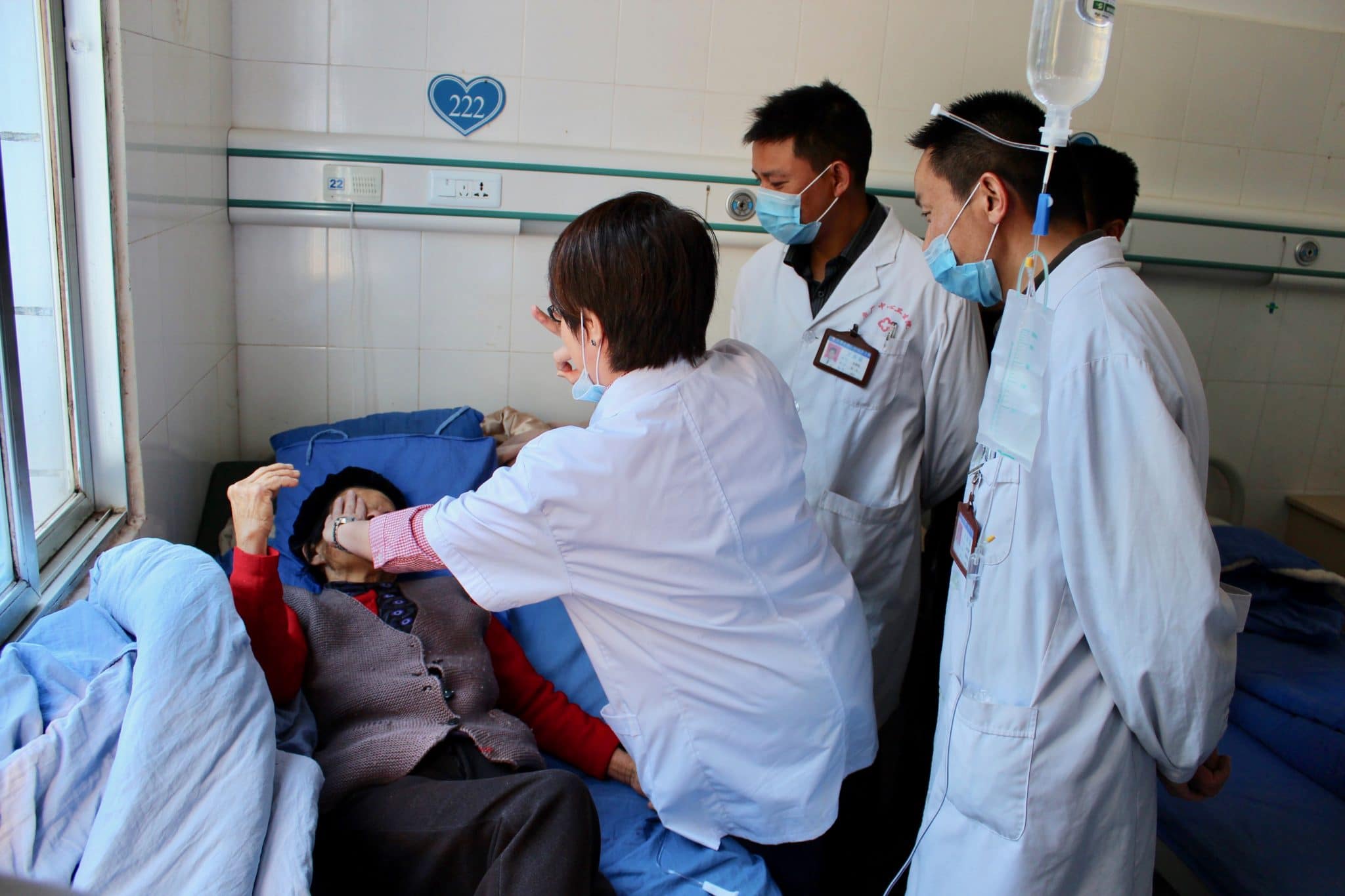
Dr Tham examining a patient during ward rounds in China. The lagging state of healthcare in the rural hospitals burdened Dr Tham greatly, and she wanted to do something about it.
“The Lord really opened the door for me in one of the postings.”
In one of her junior doctor postings, Dr Tham met Christians from the underground church in China. Wide-eyed, they spoke of the country’s lagging state of healthcare. It was the 1990s; China had only recently opened up to the rest of the world.
Well-meaning organisations were sending medical equipment in droves. Wonderful, except that no one knew how to use them.
“Especially in the rural regions, some of the services were decades behind,” she noted.
Well-meaning organisations were sending medical equipment in droves. There were complex machines to measure a patient’s heart rate and shock them back to life, compatible with what the rest of the world was using.
Wonderful, except that no one knew how to use them.
“They just became white elephants. The intensive care medicine and emergency medicine scenes were very rudimentary,” she said.
The local healthcare staff then presented their reference materials to the Singapore team: they were textbooks from the 1970s to 1980s.
“We were in the 1990s, and the Basic and Advanced Cardiac Life Support guidelines had been updated five times since then!”
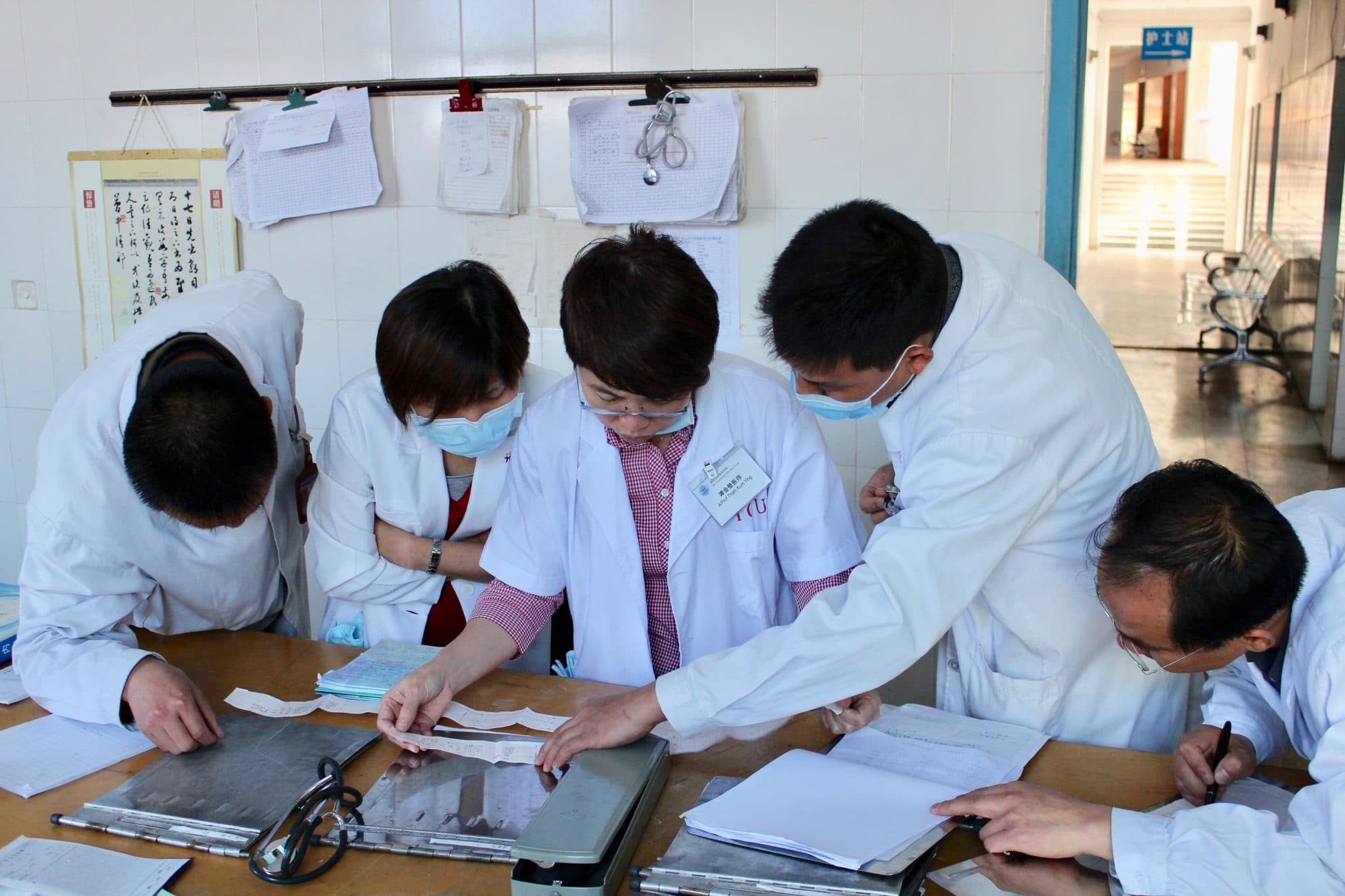
Dr Tham with medical staff from China examining an interesting electrocardiogram (ECG) reading. An ECG is a simple test to check the heart’s rhythm and electrical activity, and is frequently performed during patient triage in emergency departments.
With outdated textbooks, Dr Tham knew that substantial preparation work was needed if their short-term visits were to bear fruit.
Her team decided to translate the updated life support course material into Chinese.
“We literally went word by word, page by page,” she shared, laughing.
The course material required training equipment like manikins, and China had not started making their own.
The team prayed, and soon after, help and resources poured in. They were able to purchase and bring manikins along with other equipment.
Thus blossomed Dr Tham’s heart for China.
She would spend two decades making short-term visits to the country’s rural hospitals as a medical professional.
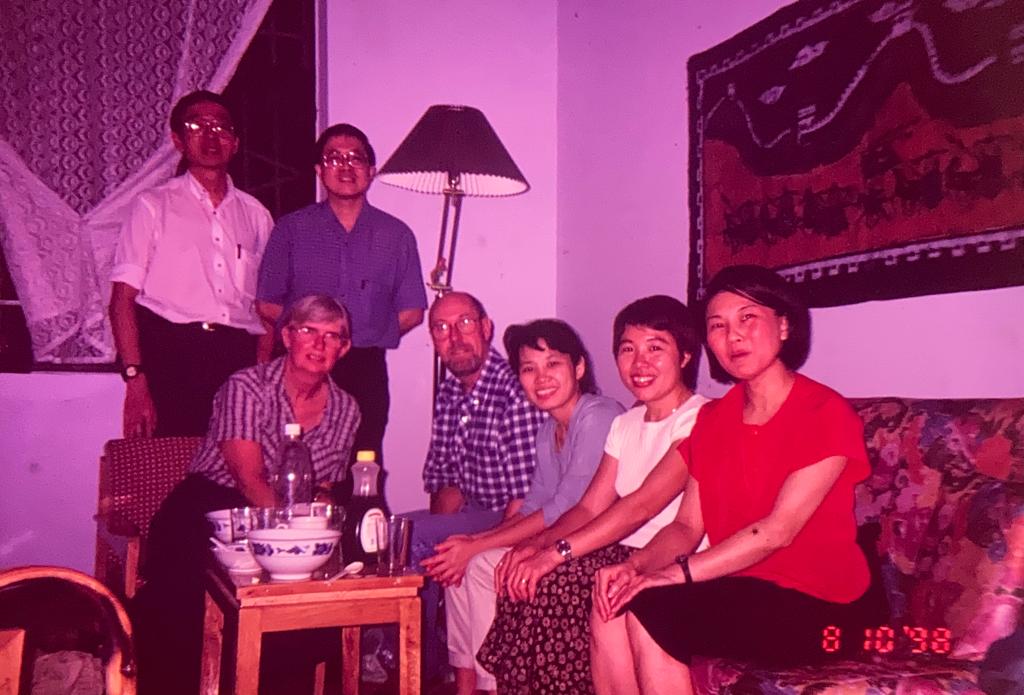
Dr Tham and the Singapore medical team, pictured with the medical staff from China in 1998.
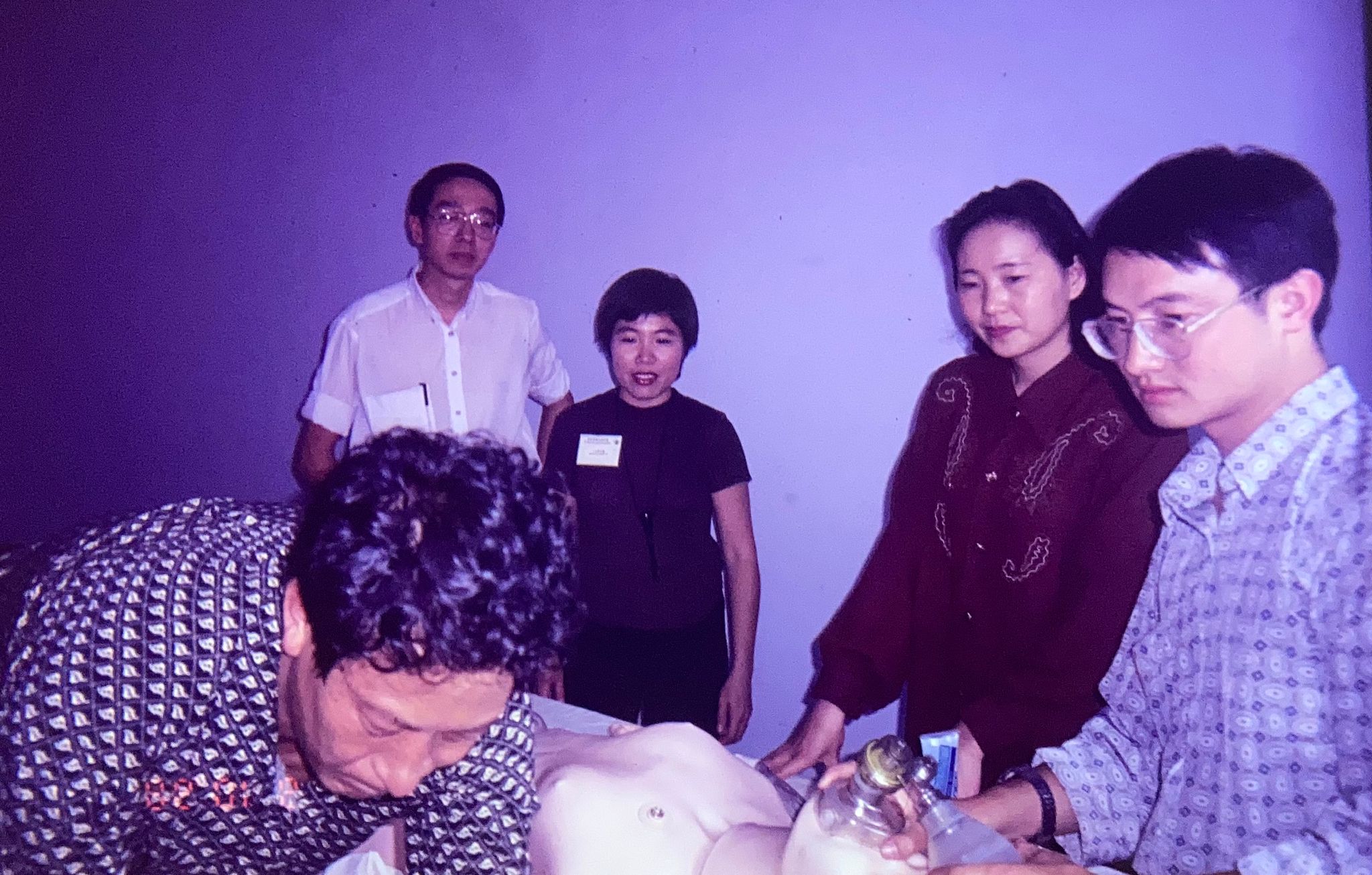
Dr Tham teaching a life support course in China in 1998.
Her team’s efforts bore fruit. In the 2000s, the central government of China conducted an audit to assess thousands of country hospitals. Everything from work processes, patient safety, leadership and governance were taken into consideration.
Dr Tham was on a night shift when she received a text message on the results of the audit. She did not know what to expect. It was still a rural hospital, after all, and they were at the mercy of auditors from more affluent cities.
The hospital they had worked with was awarded the highest categorisation.
“We were overjoyed. The auditors were full of praise for the hospital, and it validated the work that we did,” Dr Tham said, beaming.
One day, a staff member leaned in from across the dinner table and asked, “Can I have a Bible?”
It wasn’t just the government that was impressed. The local staff began to take notice.
Here was a strange group of 20 foreigners from a tiny island who began their mornings with thanksgiving and served the rural people of China selflessly, year after year.
One day, a staff member leaned in from across the dinner table and asked, “Can I have a Bible?”
Eventually, several members of the hospital gave their lives to Christ.
“I learnt a lot of things teaching in an underserved area like China. It helped me plan and implement better in Singapore.
“It helped immensely, especially as we were revamping the entire training system in Singapore to the American style of residency programmes.”
From hospital to classroom
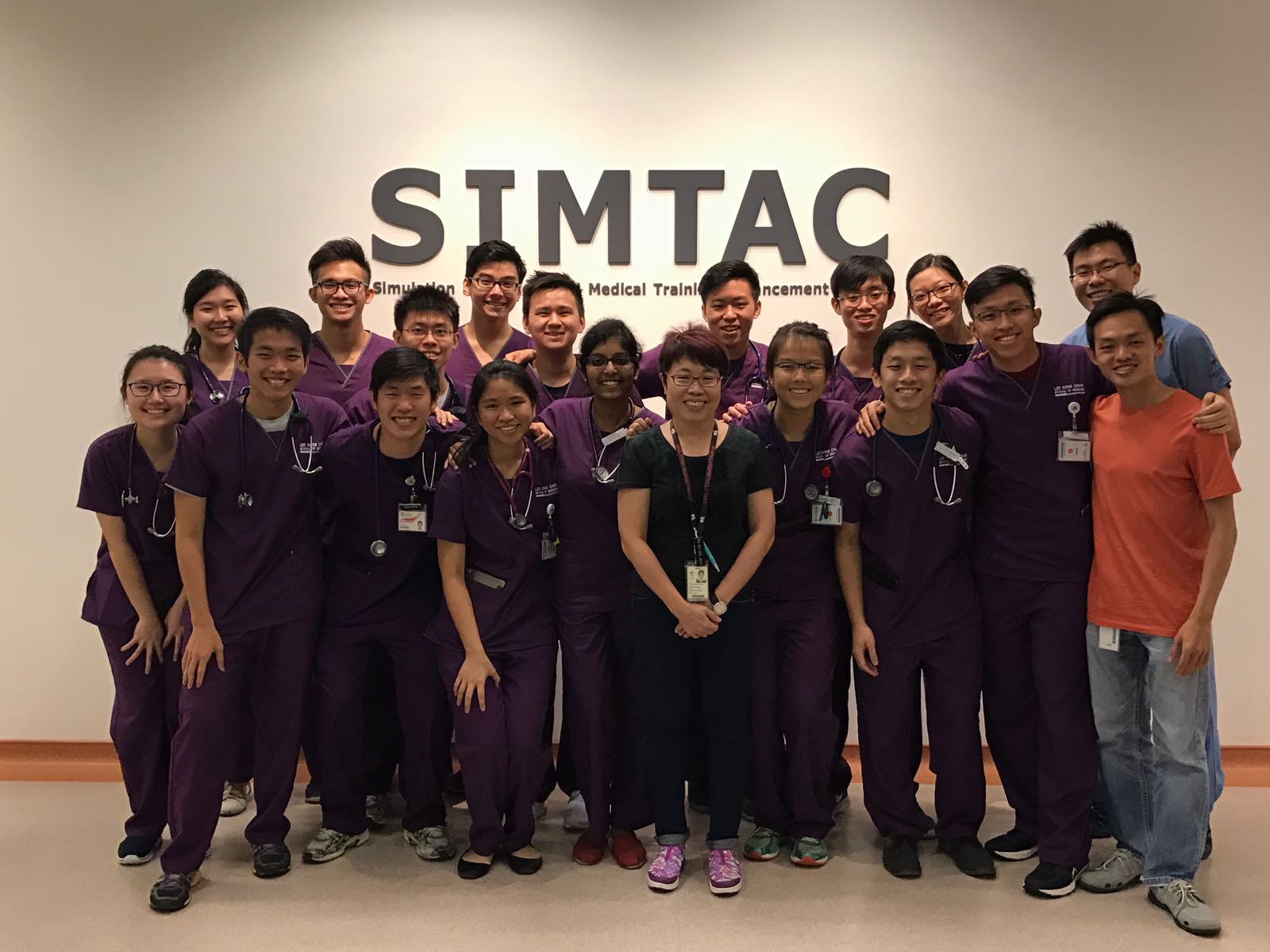
Dr Tham with medical students at the Simulation and Integrated Medical Training Advancement Centre (SIMTAC), located in Tan Tock Seng Hospital.
When Dr Tham won the inaugural Best Teacher Award for the Division of Surgery at Tan Tock Seng Hospital in 2000, just one question circled in her mind.
“What have I done to deserve this award?”
After all, gathering learners around a patient, discussing clinical findings, gently correcting techniques – these had all become second nature to her.
Little did Dr Tham know that this would be God’s spark to develop her gift of teaching and leadership.
In 2007, she was offered an appointment as Associate Dean of the Yong Loo Lin School of Medicine.
But she hesitated.
“It was such a fundamental change to my professional identity. I had been defined as an emergency physician for so long.”
“People realised that a young dean could bring a lot of energy and new ideas. It was definitely a door that God opened.”
Furthermore, the associate deanship was a funded position, meaning she would need to let go of half of her clinical duties in order to carve time out for medical education.
Dr Tham did what had long been second nature to her: She prayed.
“Then over the next ten days, people started giving me advice, out of the blue. They didn’t even know I was considering the position!”
After three weeks of praying and seeking wise counsel, Dr Tham made her decision.
In a sea of white-haired professors and ties, Dr Tham became the youngest associate dean in her forties, and the first female one.
Despite the initial scepticism, it became clear that this was a path God had carved out for her.
“People realised that a young dean could bring a lot of energy and new ideas into how things were done. It was definitely a door that God opened,” she said, smiling.
The grit needed to start a new medical school
In 2009, Dr Tham was roped in as Assistant Dean to found Singapore’s third medical school, the Lee Kong Chian School of Medicine (LKCMedicine).
It was a mammoth project involving two government ministries, Nanyang Technological University and the Imperial College London.
With the privilege of a blank canvas, she was determined to prayerfully weld together best practices she had picked up from her time in China and her many years as a clinician-educator.
Everything from the school fees to the divvying up of the curriculum was pieced together by her and a trusted colleague, Ms Yvonne Ng, in weekly coffee shop appointments, then in hospital boardrooms.
It helped that the partnership was rooted in a shared faith.
“We got along together like a house on fire from the very beginning. Close in age, seeing things in a similar way, and we were both Christians, too,” Dr Tham said.
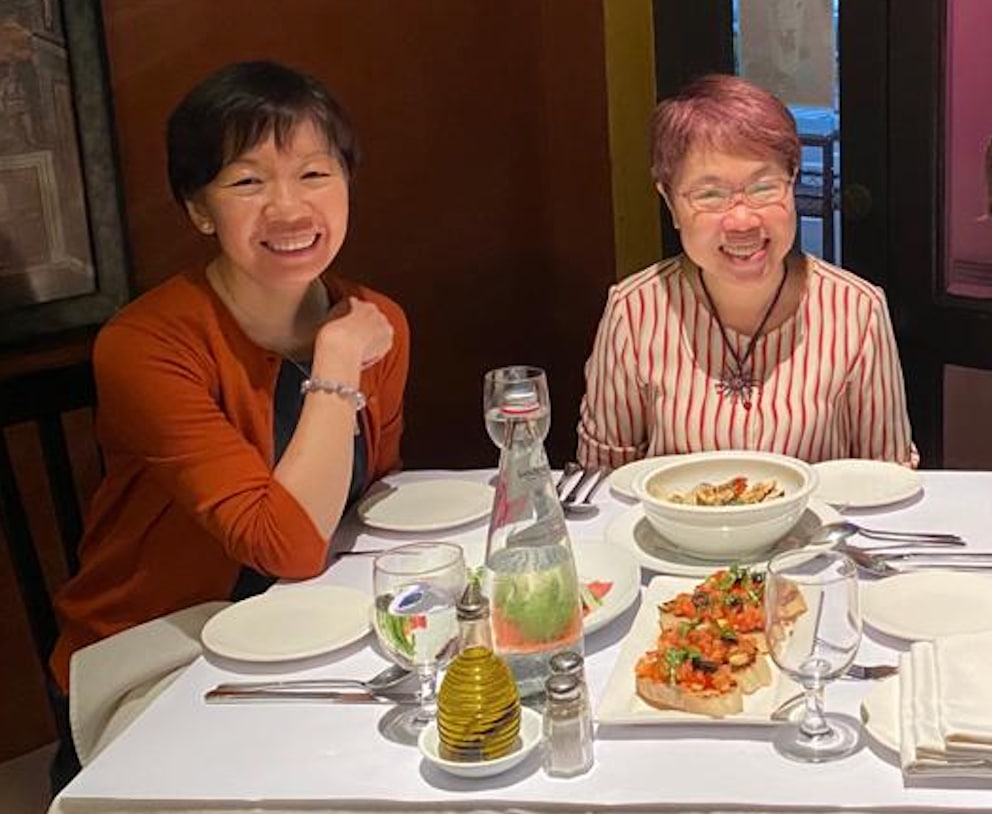
Dr Tham and Ms Ng sharing one of their countless meals together. The pair often advocated for changes in medical education for areas they felt were ethically and professionally right.
With characteristic grit, Dr Tham stood firm on certain matters.
Despite the school’s partnership with a prestigious overseas institution, she was determined to allow local partners to shape the clinical portion of the curriculum, owing to the unique design of Singapore’s healthcare system.
“Despite initial doubts, everyone eventually saw that it was the right decision,” she shared.
Raising compassionate doctors
Dr Tham envisioned a school that produced doctors with sensitivity, compassion and competency.
She pushed for a policy to mandate professionalism as a criterion for students to progress to the next academic year.
“We wanted to integrate teaching on professionalism from day one, right into our teaching of anatomy, pathology and the like,” she shared, noting how doctors have the precious responsibility of caring for their patients, who are a vulnerable population.
Today, LKCMedicine students interact with patients from as early as their first semester, long before they obtain their degree.
“There will be difficult decisions, and I do not make them in a light-hearted manner. I make them with a lot of prayer, and guided by the Lord.”
Dr Tham has had to make unpopular decisions for the sake of her students’ character development.
When the school implemented home-based learning during the pandemic, nearly a quarter of students logged in late for lessons, something Dr Tham considered unacceptable.
Her swift response came in the form of the Conscientiousness Honesty Engagement Respect Index (CHERI), an audit tool that addresses matters from plagiarism to late-coming.
“After implementing CHERI, a lot of the low-burning, recalcitrant, unprofessional behaviour stopped,” said Dr Tham, who regards punctuality as a crucial part of professionalism.
“It received a lot of brickbats from the students, but it was the right thing to do.”
She recalls a verse from Hebrews 12:11 (NIV): “No discipline seems pleasant at the time, but painful. Later on, however, it produces a harvest of righteousness and peace for those who have been through it.”
“The Lord never promised us an easy life. I needed courage when writing difficult things in the newsletters. And some of the letters were very harsh scoldings.”
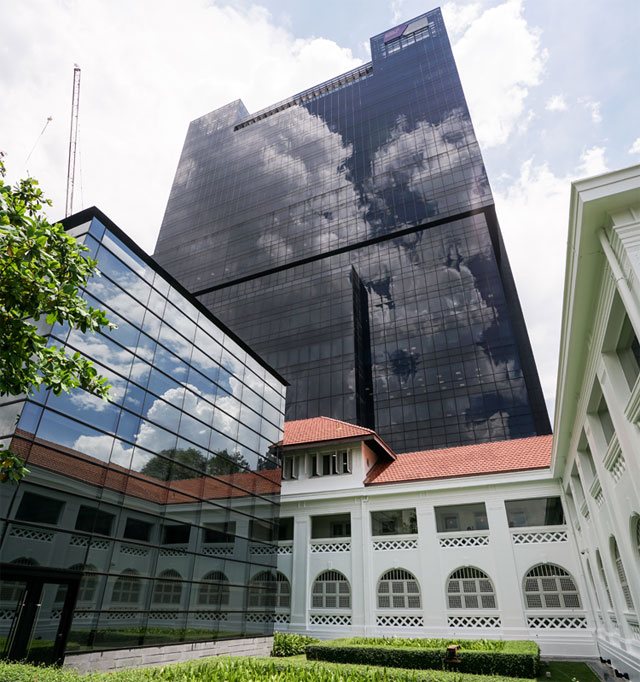
The LKCMedicine campus in Novena houses a 20-storey modern building and a three-storey heritage building. Dr Tham canvassed for a beautiful medical library to be housed in the campus for the benefit of her students. Photo from public domain.
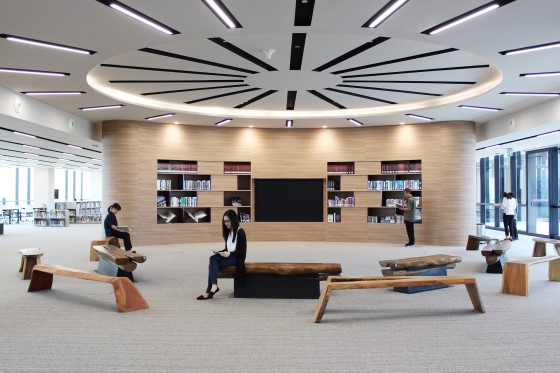
The LKCMedicine library boasts a view of the city skyline and is a place of inspiration for its students. “I wanted to give students a library they would remember,” Dr Tham said. Photo from Nanyang Technological University.
Above all, Dr Tham takes stewardship of her responsibilities seriously.
“There were many realisations where the policies I’m writing are going to live long after me, to shape the system and the behaviour.
“There will be difficult decisions, and I do not make them in a light-hearted manner. I make them with a lot of prayer, and guided by the Lord.”
Fighting the good fight
Just a year before the launch of LKCMedicine, Dr Tham faced a personal tragedy, details of which she has requested to keep private.
“I realised that I could either go to pieces, or draw upon his strength to see me through everything.”
Clinging to the Lord, she pushed ahead with the launch. 2 Timothy 4:7-8 (NIV) remains her favourite verse: “I have fought the good fight, I have kept the faith, I have finished the race.”
“I will live one day at a time, draw strength from the Lord one day at a time, one week at a time, one year at a time, every day. And He will send me where I can find help and who I can seek help from.”
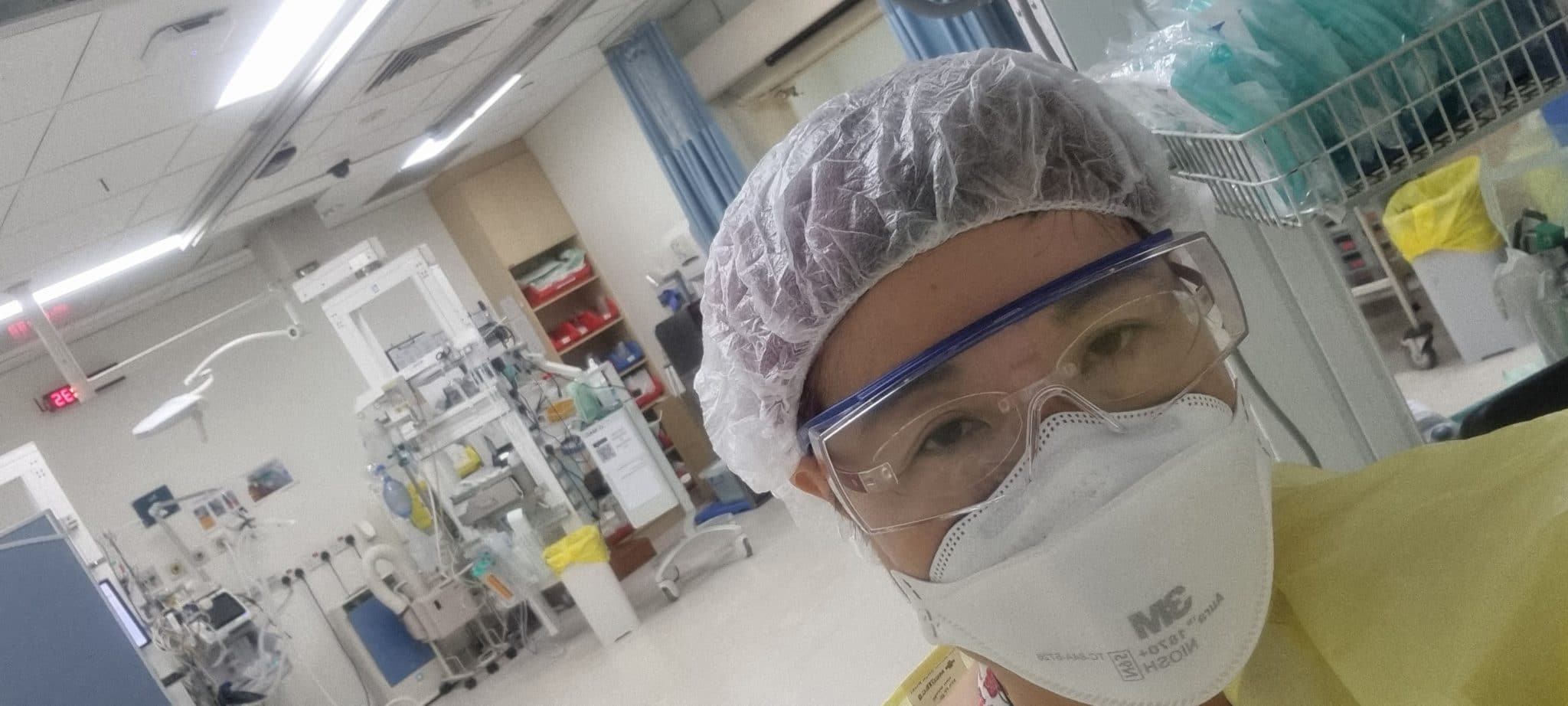
Dr Tham in the emergency department of a hospital in 2021, decked out in full personal protective equipment as part of Covid-19 precautions.
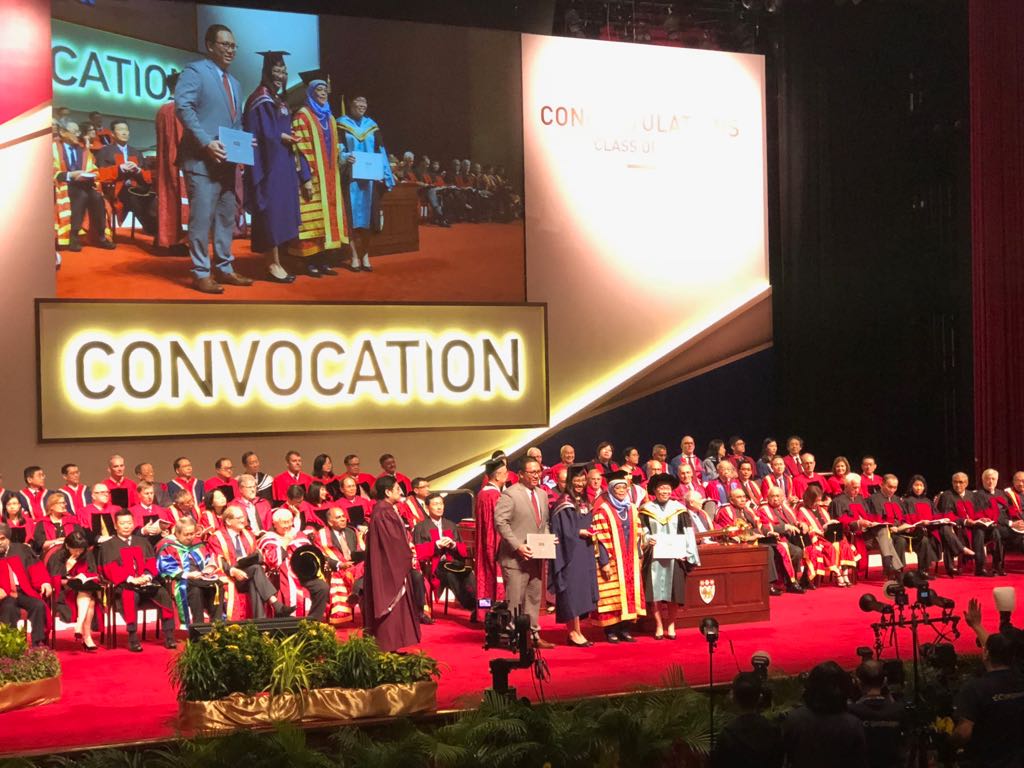
LKCMedicine class of 2018 convocation. Dr Tham’s student topped the class and was a Koh Boon Hwee scholar who credited Dr Tham as an inspiring teacher.
LKCMedicine recently presented its fifth batch of doctors this year. Alumnus Dr Nathanael Goh said Dr Tham was instrumental in helping his cohort get through a rough term, hampered by the pandemic.
Much of his batch’s clinical exposure had been clipped short, and uncertainty abounded.
“Dr Tham never failed to keep an open channel for us to give our honest feedback, and we were supported through this difficult year in every way,” he said.
“I am there as their shepherd, as their mentor,” Dr Tham says of her students.
Dr Goh still recalls Dr Tham’s sharing of 1 Peter 4:10 with his cohort at the start of their medical journey: “As each has received a gift, use it to serve one another, as good stewards of God’s varied grace.”
“It was a reminder that all we have on earth – our riches, talents, gifts and appointments – is given by God, and we are merely the stewards.
“As a junior doctor just beginning my journey on a long and challenging career, I am reminded to approach my career with a humble heart and willing hands,” Dr Goh shared.
Perhaps such is the fruit of a leader who is soft to the Lord’s leading and iron-willed in sowing and reaping.
Even after their graduation, Dr Tham still texts her students individually to check up on them, asking about their House Officer postings.
“I am there as their shepherd, as their mentor,” she says of her students.
“A good mentor asks the Lord to see beyond their flaws, and walk with them as the Lord sees them.”
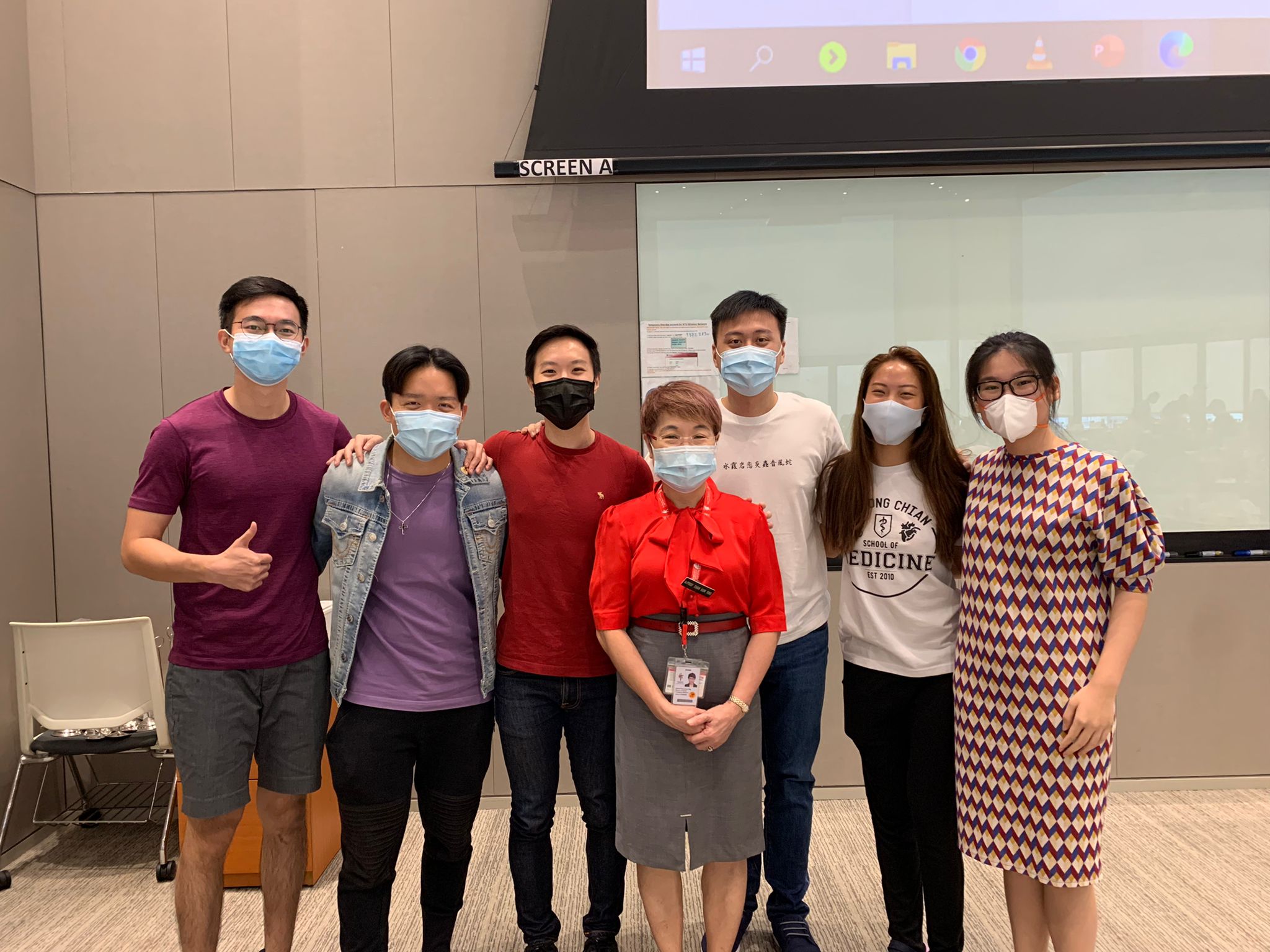
Dr Nathanael Goh (second from left) and fellow LKCMedicine students with Dr Tham on their last day of school. “Dr Tham commands a great deal of respect and, dare I say, even a certain kind of reverence from us medical students,” he said.
The sterling emergency and medical department in a rural hospital in China. The fresh and hardy batch of LKCMedicine graduates. The 20-storey medical campus that hundreds of aspiring doctors call their second home.
These are just some of the fruits of Dr Tham’s faith journey with the Lord.
As she shepherds those He places in her path, she continues to seek guidance from the Shepherd Himself.
“The Lord sent people to shake and open each and every door,” Dr Tham concluded.
Perhaps the flip of her father’s coin, which would lead her to live out her Father’s commission, was not so fortuitous after all.
RELATED STORIES:
“Nigel and Donavan, one day we’ll meet again,” say parents of boys in tragic Tampines accident
“If God doesn’t heal, then what?” A question Pastor Philip Lyn grappled with
We are an independent, non-profit organisation that relies on the generosity of our readers, such as yourself, to continue serving the kingdom. Every dollar donated goes directly back into our editorial coverage.
Would you consider partnering with us in our kingdom work by supporting us financially, either as a one-off donation, or a recurring pledge?
Support Salt&Light